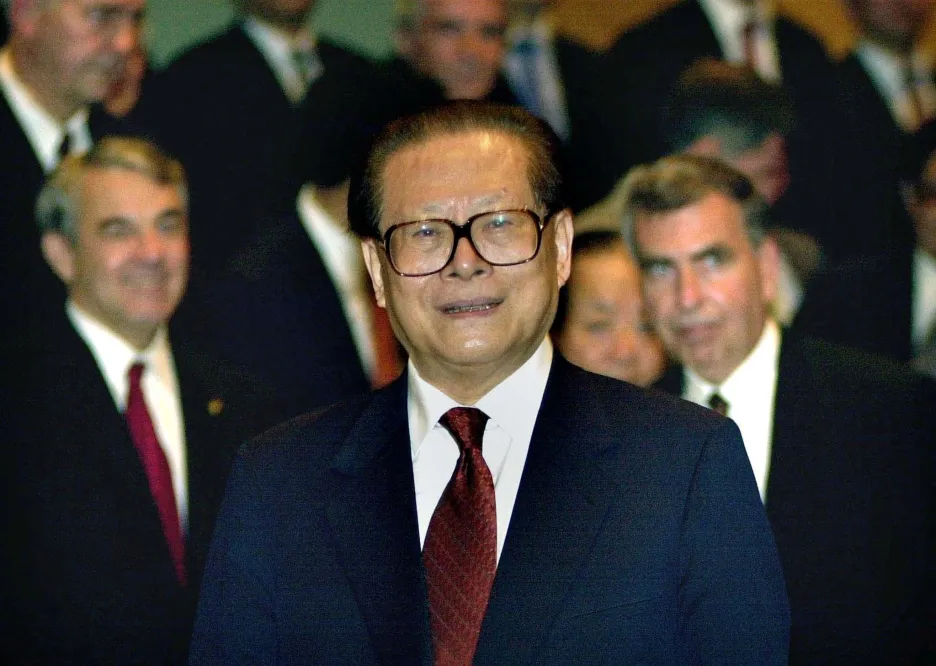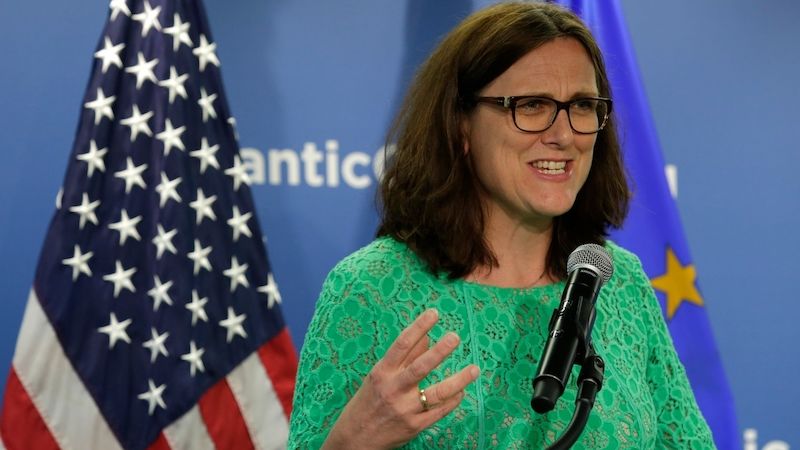The New China Agency added that flags on Communist Party and government buildings will be lowered to half staff.
“Comrade Jiang Zeming’s death is a great loss to our party, army and people,” the Chinese Communist Party, parliament, government and army wrote in a joint letter to the nation. The document describes Jiang as “an outstanding leader, a prominent Marxist, a statesman, a military strategist, a diplomat and a proven communist fighter.”
Jiang Zemin took over the leadership of China in 1989 after the bloody suppression of pro-democracy demonstrations in Beijing’s Tiananmen Square and remained in power until 2002. Although he supported the intervention, he still won considerable sympathy while, as secretary of the Shanghai Party Committee. , he ignored instructions from Beijing and refused to use force against other protesters in Shanghai.
In high-profile politics, the then barely known mayor of Shanghai was chosen as his successor by the architect of China’s economic reforms, Deng Xiaoping, who remained the country’s de facto ruler for a long time. As head of the Communist Party, Jiang succeeded General Secretary Cao Ziyang who was deposed in June 1989.
Jiang Zemin perfectly fulfilled the task of the great reformer – he ensured the country’s economic development and stability. Under his rule, China experienced its longest period of economic growth, joined the World Trade Organization (WTO), and won the right to host the Olympics in 2008. He opened the Communist Party to all social groups, including private entrepreneurs. However, the dark side of accelerating development, for example, deepens the gap between the rich and the poor.
Understanding their bloody protests and suppression
Jiang Zemin’s position on human rights is ambiguous, to say the least. He was sympathetic to the student protests of the 1980s and criticized them. In the 1990s, he apologized for the suppression of the Tiananmen Square demonstrations: “If the Chinese government does not take decisive action, we cannot achieve the stability we are experiencing now.” Under his rule, religious and ethnic minorities continued to be persecuted, with Jiang banning, for example, the religious group Falun Gong. The regime also severely punished any expression of disagreement with the communist dictatorship.
Although he took office in 1989 as transitional ruler, he remained in power for more than a decade. He surprised by Chinese standards with his liberal mindset, maneuverability, and capacity for deal. He traveled a lot and had success in foreign policy. Even though he lacks charisma, he dazzles with his knowledge of English.
Jiang represents the third generation of Chinese Communist leadership (after Mao Zedong and Deng Xiaoping). To his credit too, the handover after Teng’s death in 1997 was peaceful, and he gradually faded into the background. Already in November 2002 and March 2003, Jiang handed over the presidency of the party and state to his successor, Hu Jintao.
Following Deng Xiaoping’s example, he later retained leadership of the two Central Military Commissions and thereby influenced foreign and military policy. He surrendered for good in March 2005, becoming the first Chinese leader to actually retire.
Jiang Zemin was born on August 17, 1926 in Yangzhou, Jiangsu Province. According to Chinese tradition, after the death of his uncle, a communist writer who was killed in battle, he was adopted by his wife, descended from a martyr. He studied mechanical engineering in Shanghai. He knows English, Russian, a little Japanese and Romanian. Her hobbies include singing and playing the piano, writing poetry and painting.
In recent years there has been speculation about his health, and in July 2011 the Hong Kong media broadcast reports that Jiang had died. According to Reuters sources, Jiang was in the intensive care unit of the Beijing military hospital after a heart attack. However, in October of the same year, he appeared in public after a long time.
Zeman: He is one of the important leaders of the Chinese people
UN Secretary General António Guterres recalled Jiang Zemin. She described him as a “strong advocate of international engagement” and recalled her “warmth and openness”. The UN Security Council commemorated the death of the Chinese leader with a minute’s silence.
“As a good friend of our country, Jiang Zemin made an invaluable contribution to the development of Russia-China relations… The memory of such an authoritative politician and a wonderful person will remain forever in my heart,” Russian President Vladimir Putin also responded until his death former Chinese leader.
His Czech counterpart Miloš Zeman also sent a condolence letter to President Xi Jinping. “Jiang Zemin is one of the great leaders of the Chinese people. He made a mark in the history of the People’s Republic of China especially through its economic reforms. His achievements include the introduction of private business possibilities in China and China’s entry into the World Trade Organization. I appreciate his leadership skills, which ensure economic development and the stability of your country,” the Czech president said in the letter.
“I am sure that even though President Jiang Zemin is no longer with us, he will forever hold a place in the hearts and memories of the nation,” he added.
Corporate sinologist Synopsis David Gardaš said in an event commentary about the former Chinese president that he opened up the economy to a certain extent, and despite violent protests being suppressed in Heaven Square, he maintained relatively warm relations with the West. In 2001, the country joined the World Trade Organization (WTO), which fueled further growth.
The founder and director of the European Center for Career Education, Tomáš Hülle, believes he was to some extent “pushed” down this path by his predecessors. At that time, according to him, China was also studying what is meant by the concept of law and individual business. “The new generation of entrepreneurs then acted very differently.”

“Tv nerd. Passionate food specialist. Travel practitioner. Web guru. Hardcore zombieaholic. Unapologetic music fanatic.”







